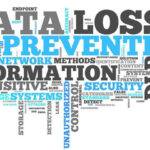
Introduction: In an era dominated by technology, the need for cybersecurity has become paramount. As organizations and individuals increasingly rely on digital systems to store sensitive information and conduct critical operations, the threat landscape has expanded, giving rise to the vital role of ethical hacking. Ethical hacking, also known as penetration testing or white-hat hacking, is the proactive and legal practice of identifying vulnerabilities in computer systems to strengthen their security defenses. In this article, we delve into the realm of ethical hacking, exploring its principles, methodologies, and the indispensable value it brings to our digital world.
Understanding Ethical Hacking: Ethical hacking stands as a noble profession, employing individuals with exceptional technical skills to detect and address potential security weaknesses. Unlike malicious hackers, ethical hackers operate within the boundaries of the law, with a common objective of fortifying systems against cyber threats. They work alongside organizations, governments, and individuals to identify vulnerabilities that malicious actors could exploit. Ethical hackers undertake rigorous training, continuously honing their skills to keep pace with evolving technologies and threats.
The Importance of Ethical Hacking: Ethical hacking serves as a crucial defense mechanism against cyber threats, offering several key benefits:
- Proactive Security: By simulating real-world attack scenarios, ethical hackers proactively identify vulnerabilities before malicious hackers can exploit them. This allows organizations to patch weaknesses, strengthen defenses, and prevent potentially devastating cyber attacks.
- Protection of Sensitive Data: With cybercrime on the rise, protecting sensitive information has never been more critical. Ethical hackers play a vital role in securing confidential data, ensuring that it remains safeguarded from unauthorized access and potential data breaches.
- Compliance and Risk Management: In an increasingly regulated digital landscape, organizations face stringent compliance requirements. Ethical hacking helps organizations assess their security posture, identify compliance gaps, and implement necessary measures to mitigate risks, avoiding severe penalties and reputational damage.
- Enhancing Public Trust: By actively engaging in ethical hacking practices, organizations demonstrate their commitment to data security and user privacy. This builds trust with customers, partners, and stakeholders, fostering long-term relationships and safeguarding brand reputation.
Ethical Hacking Methodologies: Ethical hackers employ a range of methodologies and techniques to identify vulnerabilities and test the security of computer systems. These methodologies include:
- Reconnaissance: Gathering information about the target system, such as IP addresses, domain names, and network infrastructure, to gain a comprehensive understanding of the organization’s digital footprint.
- Scanning: Conducting systematic scans to identify open ports, vulnerable services, and potential entry points for unauthorized access.
- Vulnerability Assessment: Employing specialized tools to identify software vulnerabilities, misconfigurations, and weak security controls that could be exploited by attackers.
- Exploitation: With proper authorization, ethical hackers attempt to exploit identified vulnerabilities to understand their potential impact and to provide recommendations for mitigation.
- Reporting and Recommendations: Ethical hackers meticulously document their findings, providing detailed reports that highlight vulnerabilities and suggest actionable recommendations to improve the system’s security posture.
Conclusion: Ethical hacking plays a critical role in safeguarding our increasingly interconnected digital world. By proactively identifying and addressing vulnerabilities, ethical hackers contribute to the resilience of organizations, governments, and individuals against cyber threats. As technology continues to advance, the demand for skilled ethical hackers will only grow. Embracing ethical hacking as an integral part of cybersecurity strategies is key to maintaining a secure and trustworthy digital landscape for generations to come.




Leave a Reply